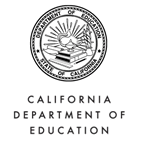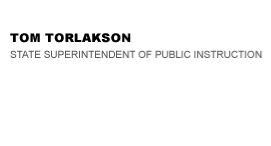Related Services under the IDEA


Official Letter
Official Letter
September 13, 2011
Dear County and District Superintendents, Special Education Local Plan Area Directors, Special Education Administrators at County Offices of Education, Charter School Administrators, Principals, and Nonpublic School Directors:
ASSEMBLY BILL 114: RELATED SERVICES UNDER THE INDIVIDUALS WITH DISABILITIES EDUCATION ACT
With the changes to state statute outlined in Assembly Bill 114 (Chapter 43, Statutes of 2011), which relieved county mental health agencies of the responsibility to provide mental health services to students with disabilities, local educational agencies (LEAs) must rely on the Individuals with Disabilities Education Act (IDEA) for guidance on the requirements for providing related services, including those that may have previously been provided by county mental health agencies (CMHAs). Related services under IDEA are defined in Section 300.34 of Title 34 of the Code of Federal Regulations (CFR):
34 CFR 300.34(a)
Related services means transportation and such developmental, corrective, and other supportive services as are required to assist a child with a disability to benefit from special education, and includes speech-language pathology and audiology services, interpreting services, psychological services, physical and occupational therapy, recreation, including therapeutic recreation, early identification and assessment of disabilities in children, counseling services, including rehabilitation counseling, orientation and mobility services, and medical services for diagnostic or evaluation purposes. Related services also include school health services and school nurse services, social work services in schools, and parent counseling and training.
Section 300.34 of Title 34 of the CFR further defines individual related services terms. The following list represents some of the services that may be appropriate when addressing the emotional and behavioral needs of students with disabilities (refer to 34 CFR Section 300.34 for the complete list of individual related services terms):
Counseling Services (34 CFR 300.34(c)(2))
Counseling services means services provided by qualified social workers, psychologists, guidance counselors, or other qualified personnel.
Parent Counseling and Training (34 CFR 300.34(c)(8))
(i) Parent counseling and training means assisting parents in understanding the special needs of their child;
(ii) Providing parents with information about child development; and
(iii) Helping parents to acquire the necessary skills that will allow them to support the implementation of their child’s individualized education program (IEP) or individualized family service plan (IFSP).
Psychological Services (34 CFR 300.34(c)(10))
Psychological services includes:
(i) Administering psychological and educational tests, and other assessment procedures;
(ii) Interpreting assessment results;
(iii) Obtaining, integrating, and interpreting information about child behavior and conditions relating to learning;
(iv) Consulting with other staff members in planning school programs to meet the special educational needs of children as indicated by psychological tests, interviews, direct observation, and behavioral evaluations;
(v) Planning and managing a program of psychological services, including psychological counseling for children and parents; and
(vi) Assisting in developing positive behavioral intervention strategies.
Social Work Services in Schools (34 CFR 300.34(c)(14))
Social work services in schools includes:
(i) Preparing a social or developmental history on a child with a disability;
(ii) Group and individual counseling with the child and family;
(iii) Working in partnership with parents and others on those problems in a child’s living situation (home, school, and community) that affect the child’s adjustment in school;
(iv) Mobilizing school and community resources to enable the child to learn as effectively as possible in his or her educational program; and
(v) Assisting in developing positive behavioral intervention strategies.
Residential Placement is not listed as a related service in Section 300.34 of Title 34 of the CFR. However, residential placement is addressed elsewhere in the IDEA:
Residential Placement (34 CFR 300.104)
If placement in a public or private residential program is necessary to provide special education and related services to a child with a disability, the program, including non-medical care and room and board, must be at no cost to the parents of the child.
In addition, the list of related services in the IDEA is not exhaustive or finite. The IEP team must decide what related services are necessary to provide a free appropriate public education (FAPE) to each student with a disability. The federal Office of Special Education Programs (OSEP) provides further guidance in the “Analysis of Comments and Changes” section of the final IDEA regulations, pertaining to Section 300.34 (excerpt below):
Comment
We received numerous requests to revise § 300.34 to add specific services in the definition of related services. A few commenters recommended including marriage and family therapy. One commenter recommended adding nutrition therapy and another commenter recommended adding recreation therapy. A significant number of commenters recommended adding art, music, and dance therapy. One commenter recommended adding services to ensure that medical devices, such as those used for breathing, nutrition, and other bodily functions, are working properly. One commenter requested adding programming and training for parents and staff as a related service. A few commenters requested clarification on whether auditory training and aural habilitation are related services. One commenter asked whether hippotherapy should be included as a related service. Other commenters recommended adding language in the regulations stating that the list of related services is not exhaustive. A few commenters asked whether a service is prohibited if it is not listed in the definition of related services.
Discussion (Response from OSEP)
Section 300.34(a) and Section 602(26) of the Act state that related services include other supportive services that are required to assist a child with a disability to benefit from special education. We believe this clearly conveys that the list of services in § 300.34 is not exhaustive and may include other developmental, corrective, or supportive services if they are required to assist a child with a disability to benefit from special education. It would be impractical to list every service that could be a related service, and therefore, no additional language will be added to the regulations.
Consistent with §§ 300.320 through 300.328, each child’s IEP team, which includes the child’s parent along with school officials, determines the instruction and services that are needed for an individual child to receive FAPE. In all cases concerning related services, the IEP team’s determination about appropriate services must be reflected in the child’s IEP, and those listed services must be provided in accordance with the IEP at public expense and at no cost to the parents. Nothing in the Act or in the definition of related services requires the provision of a related service to a child unless the child’s IEP team has determined that the related service is required in order for the child to benefit from special education and has included that service in the child’s IEP.
A child is eligible for special education and related services if they are evaluated in accordance with state and federal law and it is determined the child meets the definition of a “child with a disability,” pursuant to Section 300.8 of Title 34 of the CFR and/or the definition of an “individual with exceptional needs,” pursuant to Section 56026 of the California Education Code. To the extent that the IEP team determines that a child with a disability needs a related service to address a mental health need in order to benefit from special education, the service should be provided in accordance with the IEP. There has been some confusion regarding whether or not a student with a disability must meet the criteria for an “emotional disturbance,” pursuant to Section 300.8(c)(4) of Title 34 of the CFR, before he/she is eligible for mental health services as part of his/her IEP 1. Though mental health needs may be a significant consideration when developing an IEP for a child who meets the criteria for an “emotional disturbance,” eligibility for related services is not contingent on a particular disabling condition and should be determined based on an assessment that reveals an individualized need for the service. Similarly, a mental health diagnosis or designation as “seriously emotionally disturbed,” pursuant to Section 5600.3(a)(2) of the Welfare and Institutions Code, does not automatically indicate eligibility for special education and related services.
If you have any questions regarding this subject, please contact the Policy and Program Services Unit of the Special Education Division by phone at 916-323-2409.
Sincerely,
Original signed by Fred Balcom. Hard copy of the signed document is available by contacting the Special Education Division's Director's Office at 916-445-4602.
Fred Balcom, Director
Special Education Division
FB:sw
Footnotes
1 34 CFR §300.8(c)(4)(i) Emotional disturbance means a condition exhibiting one or more of the following characteristics over a long period of time and to a marked degree that adversely affects a child’s educational performance:
(A) An inability to learn that cannot be explained by intellectual, sensory, or health factors.
(B) An inability to build or maintain satisfactory interpersonal relationships with peers and teachers.
(C) Inappropriate types of behavior or feelings under normal circumstances.
(D) A general pervasive mood of unhappiness or depression.
(E) A tendency to develop physical symptoms or fears associated with personal or school problems.
(ii) Emotional disturbance includes schizophrenia. The term does not apply to children who are socially maladjusted, unless it is determined that they have an emotional disturbance under paragraph (c)(4)(i) of this section.
